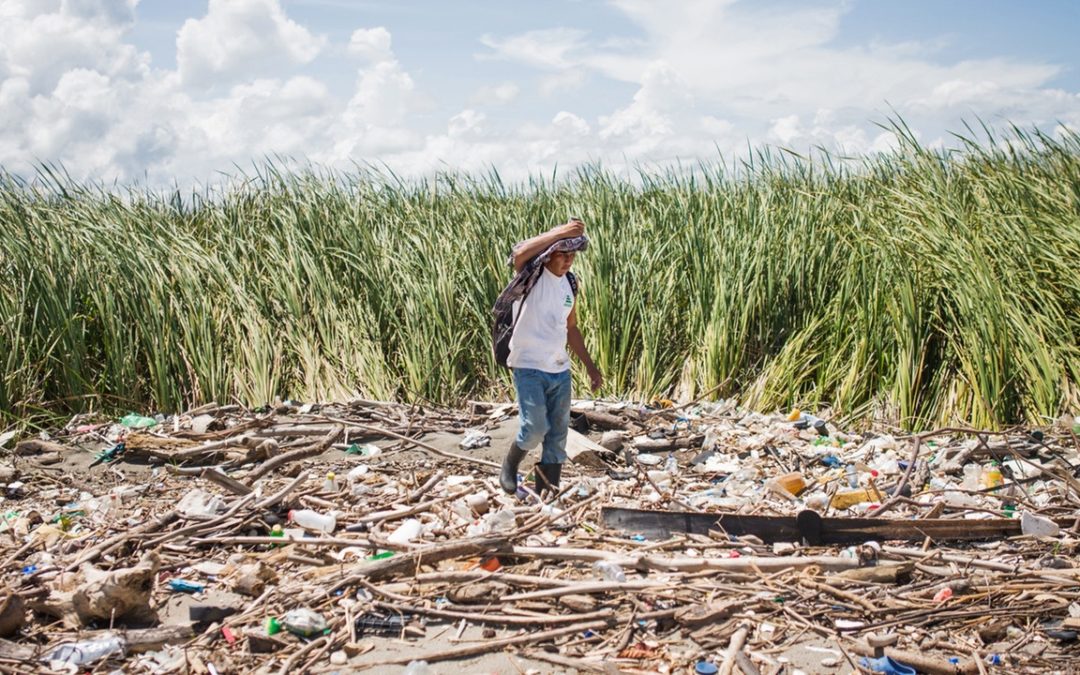The Intercept
THE FISHERMEN STAND thigh-deep in the muddy water as our boat pulls up to the shore, grass shushing against the hull. It is a still, cool morning and mist wicks off the river as the sun begins to rise above the trees. Down the beach, a white egret standing in the shallows takes flight in a burst of sound as the fishermen lift their net to reveal its glinting catch. Beside them, half-submerged, a plastic soda bottle noses purposefully past, toward the sea.
As I step onto shore, I notice more bits of plastic lying among the reeds, half-buried in the mud, as well as stained scraps of cloth, bits of packing foam, a single cracked plastic sandal. Just beyond, Guatemala’s Motagua River pours into the Caribbean, carrying with it a daily freight of trash washed out of overcrowded city dumps and unofficial landfills hundreds of miles upstream.

